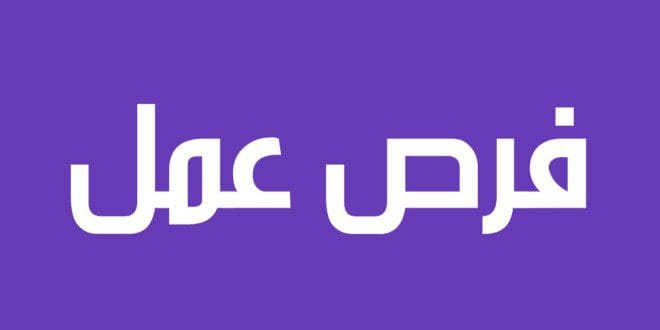فرص عمل لدى برنامج الأمم المتحدة الإنمائي: مطلوب موظف الرصد والإبلاغ ومراقبة الجودة (Monitoring, Reporting and Quality Control Officer)
معلومات الوظيفة:
المنظمة: برنامج الأمم المتحدة الإنمائي – UNDP – United Nations Development Programme
الموقع: بيروت
الدرجة: المستوى غير محدد – المستوى غير محدد
المجموعات المهنية:
الاتصالات والإعلام
رصد وتقييم
التوثيق وإدارة المعلومات
آخر مهلة للتقديم: 2024-04-01
Job Description
التقديم الى الوظيفة:
التقديم الى الوظيفة – Apply Now
Lebanon continues to confront an unprecedented financial and economic crisis facilitated by a history of violence, volatility, and social inequality that has undermined the subsistence capacity of already vulnerable populations. The country continues hosting the largest numbers of refugees per capita in the world (almost 1 in 3), estimated at 1.5 million displaced Syrians along with 31,400 Palestine refugees from Syria, 35,000 Lebanese returnees, and a pre-existing population of more than 174,422 Palestine refugees, and risks for new displacement waves are rising with a deteriorating geopolitical environment. This multi-layered crisis has devastating impacts on the social, economic and environmental capital of the country and, increasingly, on its social cohesion and stability as well.
Communities hosting large numbers of displaced populations have to face, with inadequate institutional capacities, fast-dwindling resources, and insufficient collective approach, the lingering consequences of the Syrian displacement crisis, exacerbated since 2019 by a severe economic, fiscal and governance meltdown, while pressure from climate change keeps increasing. This state-of-affairs undermines their capacity to cope with the immediate impacts of the compounded crisis – including breakdowns in essential services, rising poverty and the stiffening of inter- and intra-community tensions – and curtails their ability to overcome systemic challenges through a development approach, including, but not limited to, the protracted presence of displaced populations with no durable solutions in sight.
The Lebanon Host Community Support Project – Phase 2 (LHSP 2.0) Project builds upon the long accumulated experience and lessons learnt of implementing the LHSP since 2014. LHSP 2.0 proposes to anchor more firmly stabilization activities into an integrated local development paradigm, to work more at an area-based level in clusters and unions and to strengthen its support to municipal capacity development, in order to increase impact and sustainability of stabilization support.
At the local level, the LHSP 2.0 aims to help increase coping and sustainable development capacities in host communities and create a more enabling environment for mitigating and preventing tensions by:
- reducing perceived competition between different population groups over public services, livelihood and economic opportunities by helping to maintain and increase service outputs and create economic opportunities, in a context of acute incapacitation of the public and private sectors to maintain their levels of operations and to mitigate negative crisis impacts over populations, Lebanese, displaced or refugees; and
- providing conflict-sensitive and inclusive dialogue and decision-making spaces where different components of local communities can explore and agree peacefully on their common interests and build their own pathway to a more sustainable future.
The Project has four outputs:
| Output 1 | Local governance for stabilization | Mechanisms and capacities built in hosting areas for generating and implementing in a conflict-sensitive and gender-transformative manner local plans that can help prevent and respond to tensions and sustainably reduce multi-dimensional vulnerabilities. |
| Output 2 | Essential services & infrastructure | Physical infrastructure, including for energy supply, enhanced and more sustainable service delivery models promoted to secure affordable access to basic and social services, including energy supply, for vulnerable groups and hosting communities. |
| Output 3 | Livelihoods & local economic recovery | Decent livelihoods opportunities paying living income increased for vulnerable groups, including women, youth and people with disabilities, and opportunities for low-carbon and inclusive economic recovery generated, including through the social enterprise sector. |
| Output 4 | Social peace & social capital | Community-based peacebuilding initiatives, including in schools and media space, supported to help reduce tensions, prevent violence, including against women, and create an enabling environment for collective action for the public good. |
Under the direct supervision of the Chief Technical Advisor, the incumbent will perform the following functions:
- Support development of monitoring and evaluation strategies and indicators; including specific donors’ requirements;
- Assist in coordinating across the LHSP components to ensure effective implementation of M&E;
- Management of the monitoring and evaluation process;
- Facilitation of knowledge building and knowledge sharing in monitoring and evaluation;
- Draft donors’ reports (quarterly/annual or according to specific requests); LHSP annual report and contribution to any Country Office reports’ requests, including lessons learned from LHSP implementation.
- Support in donor relations, visit planning, and reviewing/editing/clearing proposals and concept notes to be presented to donors
- Proactively gather information from relevant partners to share and report progress
- Design and propose suitable data collection methods and implement the use of these as relevant, drawing upon data from various stakeholders and government partners.
- Support trainings for LHSP staff on M&E and following up on the trainings;
- Monitor the activities and progress towards achieving the expected LHSP results;
- Suggest strategies for improving the efficiency and effectiveness by identifying bottlenecks in implementing the LHSP M&E strategy;
- Follow up the implementation on the Information Management Tool of LHSP, in close coordination with the area level staff.
- Ensure that lessons learned from programme M&E to improve future programme selection, design and implementation. This includes liaison with external organizations to identify and distribute good M&E practices in M&E and contribute to knowledge sharing.
- Support to the communications unit for the production of central and area level documents including donor factsheets and project factsheets
- Monitoring the quality and style of written material: editing/proofreading, maintaining reporting standards, and improving language and consistency;
Institutional Arrangement
The selected incumbent will be working will work under the direct supervision of the CTA and will coordinate closely with all LHSP colleagues.
| Core | ||||||||||||||||||||||||
| Achieve Results: | LEVEL 1: Plans and monitors own work, pays attention to details, delivers quality work by deadline | |||||||||||||||||||||||
| Think Innovatively: | LEVEL 1: Open to creative ideas/known risks, is pragmatic problem solver, makes improvements | |||||||||||||||||||||||
| Learn Continuously: | LEVEL 1: Open minded and curious, shares knowledge, learns from mistakes, asks for feedback | |||||||||||||||||||||||
| Adapt with Agility: | LEVEL 1: Adapts to change, constructively handles ambiguity/uncertainty, is flexible | |||||||||||||||||||||||
| Act with Determination: | LEVEL 1: Shows drive and motivation, able to deliver calmly in face of adversity, confident | |||||||||||||||||||||||
| Engage and Partner: | LEVEL 1: Demonstrates compassion/understanding towards others, forms positive relationships | |||||||||||||||||||||||
| Enable Diversity and Inclusion: | LEVEL 1: Appreciate/respect differences, aware of unconscious bias, confront discrimination | |||||||||||||||||||||||
Cross-Functional & Technical competencies
|
| Min. Education requirements |
|
| Min. years of relevant work experience |
|
| Required skills |
|
| Desired skills in addition to the competencies covered in the Competencies section |
|
| Required Language(s) | Fluency in written and spoken English and Arabic is required.
Knowledge of French is desired |
| Professional Certificates | Not Applicable |
 سكوبات عالمية إقتصادية – EconomyScopes إجعل موقعنا خيارك ومصدرك الأنسب للأخبار الإقتصادية المحلية والعربية والعالمية على أنواعها بالإضافة الى نشر مجموعة لا بأس بها من فرص العمل في لبنان والشرق الأوسط والعالم
سكوبات عالمية إقتصادية – EconomyScopes إجعل موقعنا خيارك ومصدرك الأنسب للأخبار الإقتصادية المحلية والعربية والعالمية على أنواعها بالإضافة الى نشر مجموعة لا بأس بها من فرص العمل في لبنان والشرق الأوسط والعالم




